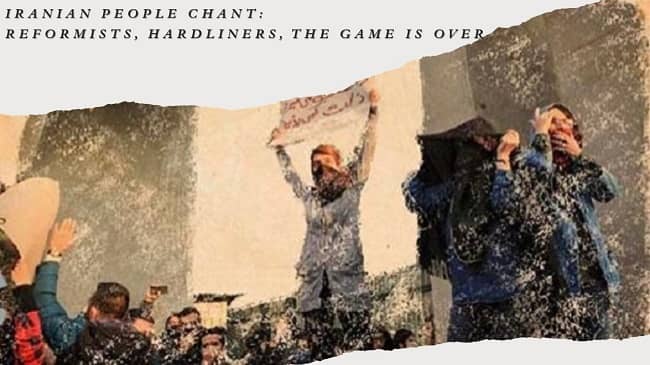For an election to be considered free and fair, there must be an actual choice in the candidates and useful instruments to allow collective decision-making. These things do not exist in Iran, so it is no wonder that the people are widely rejecting the regime and vowing to boycott the presidential elections in June, especially after the mullahs’ lackluster response to the coronavirus pandemic that has caused a healthcare and economic crisis. Even sectors of society that the regime would have considered their base, like farmers and religious people, have turned on the mullahs due to corruption and mismanagement by officials.
They cry: “Reformists, hardliners, the game is over.”
So if there’s no real choice and the people will boycott, what is the point in holding an election? Well, political scientists have repeatedly pointed out that dictatorial regimes will use so-called elections to falsely claim legitimacy in front of the international community, even if they have to majorly inflate the turnout. These are less about the people electing than officials selecting, but some foreign leaders and bodies will be fooled.
These elections are actually just a way for Supreme Leader Ali Khamenei to give his loyal followers a small amount of the resources he’s stolen from the Iranian people, but in the four years since the last election, Iran has seen three major uprisings that damaged the regime and an 18-month-long pandemic. The regime is at its weakest point since its inception.
The Iranian Resistance wrote: “Khamenei’s strategic reserves are depleted, with the remaining lot spent on an existential struggle to survive. His regime is incapable of responding to a complex web of transforming public demands while at the same time it is increasingly proving powerless to strike a sustainable equilibrium among internal warring factions to secure long-term stability. Meanwhile, more public protests are lurking in the background, threatening the regime’s future even further.”
So what has the regime done? Well, they’ve lined up candidates that have a long history of domestic suppression and international terrorism. Case in point, Judiciary Chief Ebrahim Raisi, who served on the 1988 Death Commissions that sent 30,000 political prisoners to their deaths, and Parliament Speaker Ali Larijani, who was instrumental in the damaging eight-year-long Iran-Iraq war.
The Iranian Resistance wrote: “To think that the upcoming election farce presents the Iranian people with a genuine choice is an insult to their intellect and legitimizes the brutal theocracy’s crimes. Their choice is to boycott the mullahs’ election masquerade. As they have expressed time and again, their vote is to overthrow the fundamentalist theocracy, foment a democratic revolution, and establish people’s sovereignty.”
